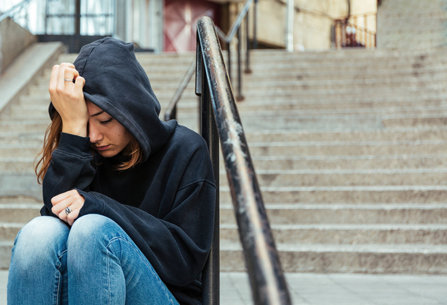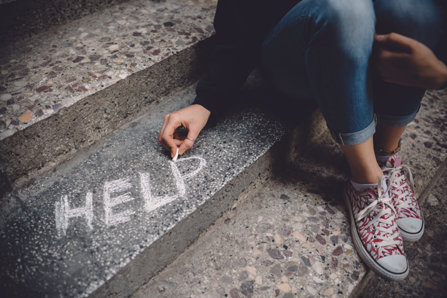How Stigma Actually HALTS Progress in Addressing Addiction in America

In human society, there are problems and issues that different people encounter throughout their lives. These could be physical, mental, spiritual, behavioral, societal, financial, or familial. For most of these problems, there are known methods for addressing them. But for addiction, one of this country’s biggest problems, there is a lack of consensus on how to address it. For too long, addiction has been seen as a character flaw, a poor moral choice, or even a criminal inclination.
Addiction is more complicated than that. People who struggle with addiction may make poor choices, but that does not make them bad people.
Why is it wrong to deride addicts, to stereotype them, and lay upon them all sorts of harsh stigmas? What would be a better way to treat those who struggle with drug and alcohol abuse?
Reducing Stigma and Stereotype
It seems wrong, simply from a logical standpoint, to vilify or harshly criticize addicts. Addiction experts have also backed this notion up thanks to their empirical research. According to the experts, when people apply a harsh stigma towards addicts, that translates into a lower priority in caring for such individuals, and less help in getting them better.
“… People showing signs of acute intoxication or withdrawal symptoms are sometimes expelled from emergency rooms by staff fearful of their behavior or assuming they are only seeking drugs. People with addiction internalize this stigma, feeling shame, and refusing to seek treatment as a result.”
From Dr. Nora Volkow, the director of the National Institute on Drug Abuse, “Little progress has been made in removing the stigma around substance use disorders. Stigma on the part of healthcare providers who tacitly see a patient’s drug or alcohol problem as their own fault leads to substandard care or even to rejecting individuals seeking treatment. People showing signs of acute intoxication or withdrawal symptoms are sometimes expelled from emergency rooms by staff fearful of their behavior or assuming they are only seeking drugs. People with addiction internalize this stigma, feeling shame, and refusing to seek treatment as a result.”

Common Stigmas and Stereotypes Associated with Addiction
One does not have to look far to find the cruel sneers and harsh remarks often levied at people who struggle with drug abuse or alcohol addiction. Some examples include:
- “Drug addicts and alcoholics always lie about things, or they only tell half-truths or partial truths.”
- “Drug addicts tend to focus on the bad parts of other people’s character to justify their behavior.”
- “Addicts almost always take the position of the victim and use that to defend themselves when people call them out on their behavior.”
- “Addicts are criminals.”
- “Addicts hurt those around them, poisoning the minds of those close to them. Addicts end up inciting contempt and resentment from the people they claim to love.”
- “Addicts are unemployable. They are society’s degenerates because they cannot keep a job.”
- “Addicts are often minorities, and they often come from poor or poverty-level classes.”
- “Addicts will steal, cheat, and generally harm those around them to get what they want.”
- “Addicts make terrible parents.”
Of course, none of these statements are universally true and are merely stereotypes attached to addiction. Furthermore, while some addicts may sometimes exhibit some of the above traits to get and use more drugs, taking the position that these behavioral errors are what make up an individual who is addicted to drugs ends up making it more difficult to help that individual.
The Importance of Reducing Stigma and Stereotype
All forms of stigma (a mark of disgrace associated with a particular person), and stereotype (a widely held, fixed, oversimplified idea of something) can be harmful. These include stereotypes that would say something like, “All addicts have a disease.”
“When we began talking about addiction as a disease, the goal was to decrease stigma and encourage treatment. That worked, to an extent, but an unforeseen byproduct was that some people experiencing addiction felt like they had less agency; people with diseases have no control over them.”
Researchers found that it’s actually harmful to stereotype addicts as individuals who “have a disease.” Sarah Desmarais, coauthor of a paper on the subject stated: “When we began talking about addiction as a disease, the goal was to decrease stigma and encourage treatment. That worked, to an extent, but an unforeseen byproduct was that some people experiencing addiction felt like they had less agency; people with diseases have no control over them.”
Addicts experience the harshness of addiction-related stigma following them everywhere they go. Troy, a Narconon Arrowhead graduate, wrote on the subject of stigma, and how it affected his life as someone who wanted to get clean. “The stigma of being an addict and not being able to stop using can be a contributor of guilt on its own. Think about it. Someone who used an illegal substance is aware they are committing a wrong and yet do it anyways. This continual betrayal of ethics creates a circle of guilt. The rate of success in recovery increases dramatically when guilt is shed away. Years of negative thoughts about self are replaced with a clear conscience that can propel a person forward.”

The National Institute on Drug Abuse penned a brief paper on the key goals that must be accomplished to reduce the treatment gap in America and get addicts help. Reducing stigma/stereotype was on that list:
- Addicts must have access to evidence-based addiction treatment services.
- Insurance parity must be achieved (equal treatment of substance abuse problems by insurance companies).
- Reduction of stigmas and stereotypes levied at addicts.
- Increased awareness of addiction in America.
- Increased awareness of the value of addiction treatment as an effective solution to addiction.
When the above strategies are implemented, and when stigmas are reduced, when addicts are treated like good people who need help and not criminal degenerates, the society can move forward, improve, and help those who suffer.
Addiction Treatment – The Correct Solution for Overcoming Addiction
An addiction to drugs or alcohol is not something to be stereotyped or stigmatized. It’s not a character flaw or a sign of an immoral individual. It is a severe physical, mental, and spiritual crisis that requires help to overcome. And especially right now, when addicts are struggling even more in the wake of the COVID-19 health crisis, these individuals need support and care, not harsh recrimination and cruel, derisive judgment. If you know someone addicted to drugs or alcohol, please do your best to assist them in getting into a drug and alcohol treatment center.
Don’t ever forget that addiction is a life or death crisis. Between 65,000 and 70,000 people die from drug overdoses every year, and more than 80,000 people die from alcohol-related causes every year. But with residential addiction treatment, addiction can be done away with, lives can be rebuilt, and recovering addicts can reenter society and pursue their dreams, passions, and ideals as ethical, upstanding individuals.
Sources:
- https://www.drugabuse.gov/about-nida/noras-blog/2020/04/addressing-stigma-surrounds-addiction
- https://news.ncsu.edu/2019/05/messaging-affects-addiction-mindset/
- https://www.narconon-colorado.org/blog/how-narconon-helped-me-build-a-life-of-meaning.html
- https://www.drugabuse.gov/publications/principles-drug-addiction-treatment-research-based-guide-third-edition/frequently-asked-questions/how-do-we-get-more-substance-abusing-people-treatment
- https://www.cdc.gov/drugoverdose/data/statedeaths.html
- https://www.niaaa.nih.gov/publications/brochures-and-fact-sheets/alcohol-facts-and-statistics
Reviewed and Edited by Claire Pinelli ICAADC, CCS, LADC, MCAP, RAS

